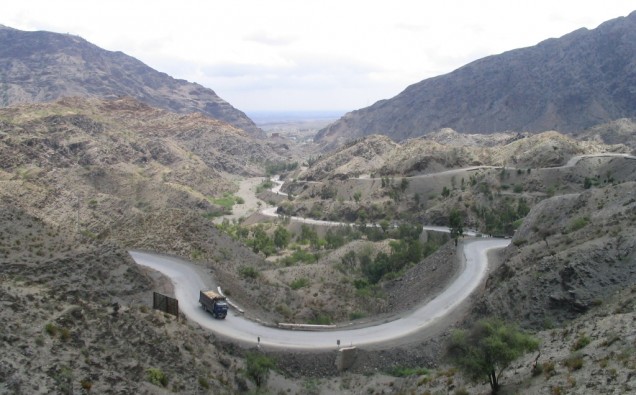
In a bid to check movement of militants across its porous border with Afghanistan, the Pakistani government has decided to establish six controlled crossing routes in the next four years that will help monitor all transport traffic by 2020.
Pakistan shares a 2430 kilometers long border with its north-western neighbor Afghanistan and cross-border movement along the Durrand Line has been a contentious issue.
Islamabad also plans to establish offices of the National Database and Registration Authority (NADRA) and a visa center at the Torkham Border.
While Pakistan has largely been successful in combating the Taliban militancy on its side of the border after a major operation, Afghanistan is still reeling under a fierce Afghan Taliban insurgency.
Afghan inability to enforce security is a major headache for the United States which has spend large amounts of money and time in improving standards of its security forces.
The United States has not been able to achieve the desired level of stability that could have transitioned its engagement with Afghanistan to a more normal level, 15 years after it overthrew the Taliban government after 9/11 terrorist attacks.
“Efforts are being made to secure and monitor the long porous Pakistan-Afghan border for the safety of the people,” Pakistan’s Interior Minister Chaudhry Nisar Ali Khan said on Wednesday, near the historic Torkham border.
Khan aid new wings of the Frontier Corps (FC) would be operational by July next year.
Pakistan, he said, has been able to curb terrorist incidents due to the government’s “result-oriented policies and persistent and timely actions of our security forces.”
But there has been a widespread criticism of Islamabad’s failure to fully implement the National Action Plan that aims to defeat the militant mindset.
Pakistan’s Zarb e Azab operation has also resulted in a number of terrorists fleeing its federally administered tribal areas to cross into Afghanistan.
But leaders of Tehreek e Taliban Pakistan have also taken refuge in Afghanistan from where they direct terrorist attacks in Pakistan an Khan referred to such militants
“These are those terrorists who enter Pakistan and play with (the) lives of our innocent people”.
Khan said terrorism is yet to be exterminated completely and close coordination among all stakeholders are required to uproot this menace completely.
He claimed that no terrorist network was operating from the Pakistani soil after its large scale operation.
The Interior Minister also reached out to Afghanistan saying Pakistan and Afghanistan have long historical, cultural and religious relation.
Pakistan has been hosting more around three million Afghan refugees since the USSR invasion of Afghanistan that began in 1979 and Pakistan’s involvement in resisting the Soviet expansion with the help of militant organizations also impacted Pakistan’s security throughout the 1980s, and its implications continue to haunt the region to this day.
Peace of Pakistan and Afghanistan is interlinked as Islamabad wanted durable peace and prosperity in Afghanistan. and regretted that whenever terrorist incidents hit Afghanistan, Pakistan is blamed without any evidence and investigation.
“We should all forget previous mistakes and look forward for progress and prosperity of the region.”














